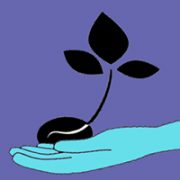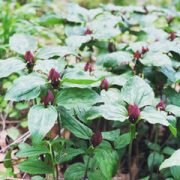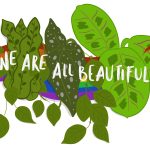Considerations for LGBTQ+ Friendly Field Work
Pride Month coincides with the middle of the field season for biologists sampling floral communities across many parts of the world. Field work often takes place in areas far from home and can require tolerating close quarters, strenuous labor, long hours, and adverse weather conditions. LGBTQ+ people face unique challenges navigating the unusual circumstances of sampling remote sites.
The following are some suggestions for consideration to promote a comfortable environment for LGBTQ+ scientists if you are planning or participating in field work this summer. This list was produced based on personal experience and conversations with friends, so certainly it is non-exhaustive. Comment below if you have additional ideas!
Explicit allyship
Make it clear that you are an ally in job postings and on websites where potential students or employees can find your contact information, most importantly when your work is conducted where it could be dangerous to be LGBTQ+. In the United States, 29 states have no anti-discrimination laws protecting LGBTQ+ people from unfair treatment based on gender or sexuality. Worldwide, there are 73 countries that criminalize same-sex sexual activity and 15 that criminalize the gender expression or identity of transgender people. Your students and employees need to know that you support them, especially if your research takes place somewhere they may feel particularly unsafe.
Awareness of regional attitudes towards LGBTQ+ individuals
Know where to find information about the local customs and cultural norms toward LGBTQ+ people to provide to students (the US Department of State has a section about international travel for LGBTQ+ folks). Even where there are no explicit laws, certain regions are more unwelcoming. Along those lines, never bring up someone’s LGBTQ+ identity without their initiation. Just because someone is out in certain circumstances does not mean they feel comfortable being out everywhere. Field work can leave people feeling particularly vulnerable especially when around new people or in places with general cultures of unacceptance.
Culture of inclusivity
Make your field team intentionally inclusive. At the beginning of the season, make it clear that bigotry will not be tolerated, and mean it. This should be done in lab environments too, but field projects in particular have unique opportunities for boundaries to be crossed. Long hours are spent working in remote locations with the same people, which is followed by eating meals with those same people, then sleeping near each other, and often have recreational time together as well in free time. A culture of alcohol consumption is common, and tensions run high after difficult days. Have check-ins with students and employees with long field seasons to ensure their comfortability; field work may be physically hard but doesn’t need to be emotionally hard.
Clear and early communication about housing
Often times, housing at universities and field stations is split by gender. However, choice should be given to students and technicians to decide who they share quarters with. It should be clear what the sleeping arrangements and bathroom/shower expectations well before people show up to work (these things may be embarrassing for people to ask up front, so include this information in onboarding procedures). Field work that requires camping in tents should be planned so that each person can have their own tent if desired.
By Rebecca Hayes (@BigGirlPlants)
Rebecca is a first year PhD student studying plant-pollinator-microbe interactions at the University of Oregon Ponisio Lab. When she’s not netting bees in the field or sequencing DNA in the lab, you can find her working on her plants from sci-fi and fantasy stories podcast, Stories Plantarum.
Additional Reading:
The following are some additional links to articles relating to LGBTQ+ scientists and field work. Consider reading one (or all) with your field team for a journal club and reflect on making your team explicitly inclusive in other ways as well.
Example of a Field Work Code of Conduct by Patricia Kaishian and Roo Vandegrift
Scientists push against barriers to diversity in the field sciences by John Pickrell
The Challenges of Fieldwork for LGBTQ+ Geoscientists by By A. N. Olcott and M. R. Downen
How LGBT+ scientists would like to be included and welcomed in STEM workplaces by Kendall Powell, Ruth Terry and Sophia Chen
Being queer in the jungle: The unique challenges of LGBTQ scientists working in the field by Ben Ragen






Leave a Reply
Want to join the discussion?Feel free to contribute!